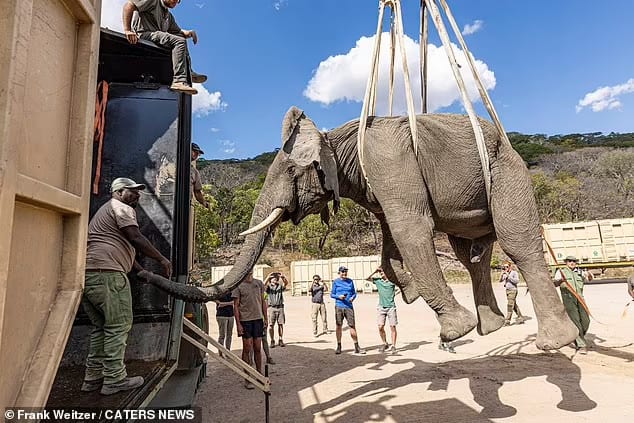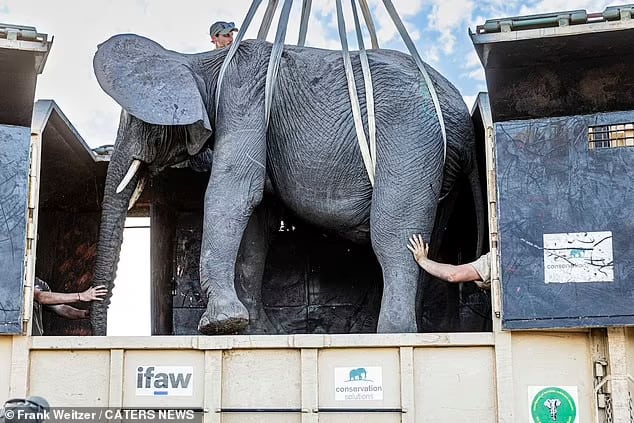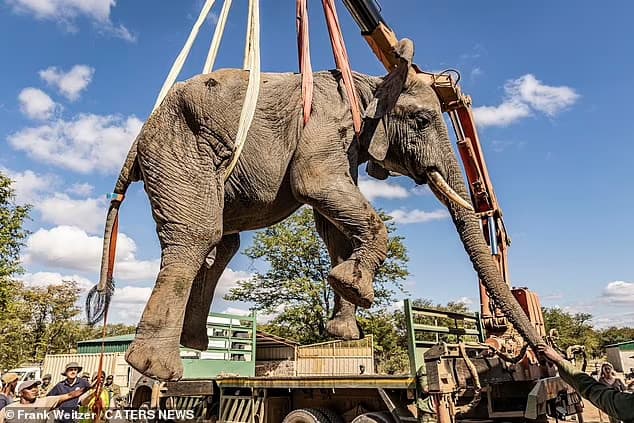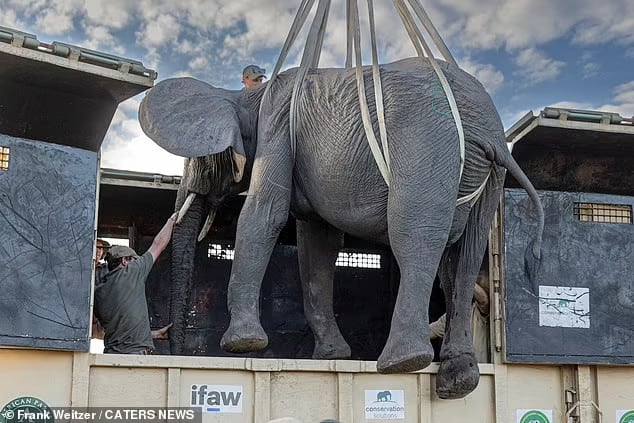In the realm of wildlife conservation, every effort is made to ensure the safety and well-being of endangered species, including the majestic elephant. As part of these endaors, ingenious methods supported by cranes have been employed to safely relocate elephants, minimizing stress and risk while striving to preserve these iconic creatures.

Moving elephants, particularly in densely populated areas or regions threatened by human-wildlife conflict, poses significant logistical challenges. However, with careful planning and the use of specialized equipment such as cranes, conservationists have devised innovative strategies to facilitate the process while prioritizing the welfare of the animals.

One such method involves using cranes to lift and transport elephants to new locations, where they can thrive in protected habitats free from threats such as poaching and habitat destruction. This approach not only ensures the safety of the elephants during transit but also minimizes the disruption to their natural behaviors and social structures.

To execute this intricate operation, a team of skilled veterinarians, wildlife experts, and crane operators work together seamlessly, adhering to strict protocols and safety measures. Before the relocation begins, each elephant is carefully assessed to determine its health status and suitability for the journey.

Once preparations are complete, the crane is carefully positioned near the elephant, taking into account factors such as terrain, weather conditions, and the animal’s behavior. With precision and care, the crane’s lifting mechanism is deployed, gently hoisting the elephant off the ground and into a specially designed transport crate.

Throughout the process, the welfare of the elephant remains the top priority, with veterinarians monitoring its vital signs and well-being every step of the way. Adequate provisions are made for food, water, and comfort during transit, ensuring that the journey is as stress-free as possible for the animal.

Upon arrival at the designated release site, the crane carefully lowers the elephant to the ground, where it is welcomed by conservationists and local communities alike. With a newfound sense of freedom and security, the elephant embarks on a new chapter in its life, contributing to the ongoing efforts to safeguard its species for future generations.

In the ever-evolving field of wildlife conservation, the use of cranes to safely move elephants represents a shining example of human ingenuity and compassion working in harmony with nature. Through careful planning, innovative techniques, and a shared commitment to conservation, we can continue to make strides in protecting these magnificent creatures and preserving the biodiversity of our planet.






